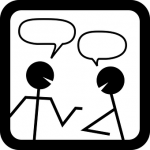Hallucinations in older persons

Information
Here you’ll find answers to some common questions concerning hearing and seeing things that others can’t
Select the underlined questions below to see more.
A hallucination is an experience of something that is not really there. It can involve any or all of the senses.
Hallucinations are more common than we realise and do not always mean we have a mental health problem.
The Hearing Voices Network suggest up to 78% of the population have heard unexplained voices at some point in their life and Rethink Mental Illness estimate around 1 in 10 people hear voices that others can’t.
A person may be experiencing hallucinations if they:
- Hear sounds or voices that nobody else hears. (Auditory)
- See things that are not there – like objects, shapes, people or lights. (Visual)
- Feel touch or movement in their body that is not real – like insects are crawling on their skin or their internal organs are moving around. Thinking their body is moving when it is not. (Tactile)
- Smell things that do not exist. (Olfactory)
- Taste things – that only they feel are not pleasant or are strange. (Gustatory)
Common causes of hallucinations in older persons:
- Infection, or confusion (delirium).
- A deterioration in a person’s eyesight or hearing.
- Diseases effecting eyesight and hearing for example tinnitus, macular degeneration or Charles Bonnet syndrome.
- Alzheimer’s disease or Parkinson’s disease.
- Anxiety, depression or bereavement.
- Poor sleep.
- Social isolation, older adults may rely on themselves for conversation, voices may function as a useful coping strategy for older adults, helping them to escape feelings of boredom, emptiness and distress caused by social isolation and lack of stimulation.
- Substance misuse
- Side effects from medicines although these are rare. However the drugs for Parkinson’s disease can often trigger hallucinations.
- After surgery and anaesthesia.
- Mental health conditions like schizophrenia or a bipolar disorder.
Hallucinations can be temporary. They can happen if you have had a migraine, a high temperature or just as you wake up or fall asleep.
People with dementia may be thought to be hallucinating but may actually be making mistakes interpreting what they have seen or heard, for example thinking a busy patterned carpet has insects on it.
Hallucinations can be extremely distressing, and can lead to the person becoming frightened and in need of support. However, some people find the hallucinations pleasant or comforting. It often depends on what they are hallucinating and how others respond.
Trying to convince someone that they are mistaken can lead to more distress. Stay with the person and try to reassure them. Ask them to describe their hallucination.
Sometimes the person may appear to be hallucinating, but there is another cause (for example, it is a misperception instead, especially with people who have a diagnosis of dementia). The following tips can help to identify hallucinations:
- Hallucinations differ from misperceptions or misidentifications. Listen to what the person is describing, and check if anything could be causing what they are experiencing. For example, if they describe a ‘swarm of insects’, and there is a busy pattern on a carpet, it may be a misperception. By changing or covering the carpet, the misperception may stop.
- If the person seems to be having auditory hallucinations (hearing things that aren’t there), arrange to have their hearing checked. If the person wears a hearing aid, check that it is working properly, at the right setting and encourage them to wear it. The person may be having problems with their hearing, rather than hallucinating.
- If the person seems to be having gustatory hallucinations (tasting things that aren’t there), make sure they are getting regular dental check-ups to rule out other causes such as tooth decay or denture cream.
If the person you care for regularly hallucinates, make an appointment for them to see their GP to rule out physical health causes.
In the first instance visit a GP to rule out physical causes. It’s helpful to take details of:
- what the person saw or sensed
- what time of day it is happening, and after what event (for example a nap, meal, or exercise)
- where it is happening, and how long it lasts
- how the person responded (for example, if they were distressed) and the words they used to describe what they experienced
- any medication the person is taking and the dosage (including any over-the-counter medications)
- key details of the person’s medical history, including any long-term health conditions, previous conditions and previous mental health issues
- the person’s use of alcohol or other recreational drugs
Treatment for hallucinations:
If a person is experiencing hallucinations in the first instance make an appointment to see a GP in order to rule out any physical health causes.
- A person may be advised to book an eye or hearing test.
- Some people find hearing voices positive, they may provide company and even cheer you up. In older people medication would not be considered unless hallucinations are causing distress or increasing the risk of harm to a person, for example if they are leaving their property at night to look for a child they are seeing.
- Drug treatments are often not that helpful for people with dementia. However hallucinations, particularly in people with dementia with Lewy bodies, may respond to anti-dementia drugs.
- Antipsychotic medication can sometimes help to reduce severe or distressing hallucinations. Older persons are more susceptible to side effects which can be significant for these medications. As such they are only used when it is felt that there is no other alternative. These medications should be regularly reviewed.
- If a person has a mental health condition like schizophrenia, they may be given therapy or
- Antipsychotic medication can sometimes help to reduce severe or distressing hallucinations. Older persons are more susceptible to side effects which can be significant for these medications. As such they are only used when it is felt that there is no other alternative. These medications should be regularly reviewed.
- medicine to help reduce hallucinations.
- Cognitive Behavioural Therapy (CBT) may help a person reduce the impact hearing voices is having on their life.
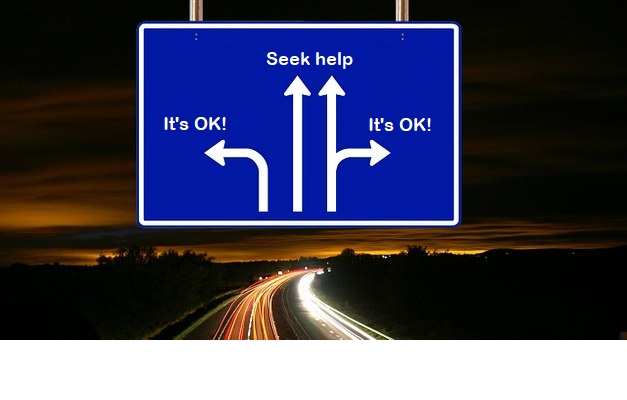
Coping with
Here you’ll find tips to help you cope with hearing and seeing things that others can’t.
The following buttons are self-help suggestions

Finding help
What can you do?
- Support the person you are caring for
- Talk to the GP
- Contact a Carer group
Select the underlined topics below to view what resources are available.

Getting more help
If you haven’t already found the help you’re looking for, you can find additional information and services which are more interactive here.







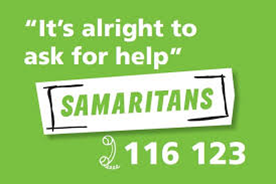




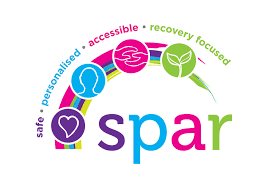
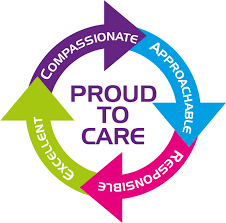




 Distract yourself with any activity that helps you to focus on something other than the hallucinations, for example watching a favourite TV programme or engage in a hobby.
Distract yourself with any activity that helps you to focus on something other than the hallucinations, for example watching a favourite TV programme or engage in a hobby.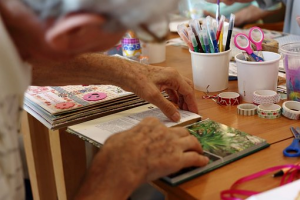
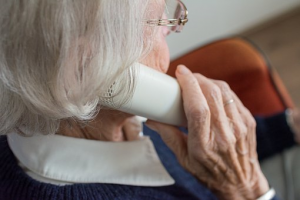
 Talk back to the voices, some people find challenging their voices or saying no to them is empowering. Ignoring the voices entirely can sometimes help to withdraw or deny their control. Some people find that ‘reality testing’ is helpful, this means checking the reality of what the voice is saying, for example, by asking someone you trust what they think.
Talk back to the voices, some people find challenging their voices or saying no to them is empowering. Ignoring the voices entirely can sometimes help to withdraw or deny their control. Some people find that ‘reality testing’ is helpful, this means checking the reality of what the voice is saying, for example, by asking someone you trust what they think.
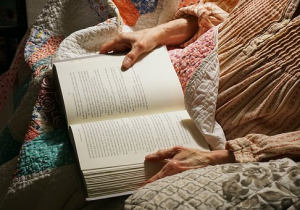 Sleep, our mental health improves when we can achieve a better quality and quantity of sleep. Keeping to a routine of sleep and waking times helps. Avoiding naps in the day. Avoiding excessive caffeine, nicotine and stimulants before bed. Avoiding excessive screen time use in the evenings and allow time to relax and wind down.
Sleep, our mental health improves when we can achieve a better quality and quantity of sleep. Keeping to a routine of sleep and waking times helps. Avoiding naps in the day. Avoiding excessive caffeine, nicotine and stimulants before bed. Avoiding excessive screen time use in the evenings and allow time to relax and wind down.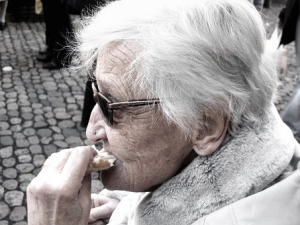 Diet, as we get older staying hydrated and eating regularly is very important, poor diet and fluid intake can contribute to hallucinations and poor mental health.
Diet, as we get older staying hydrated and eating regularly is very important, poor diet and fluid intake can contribute to hallucinations and poor mental health.